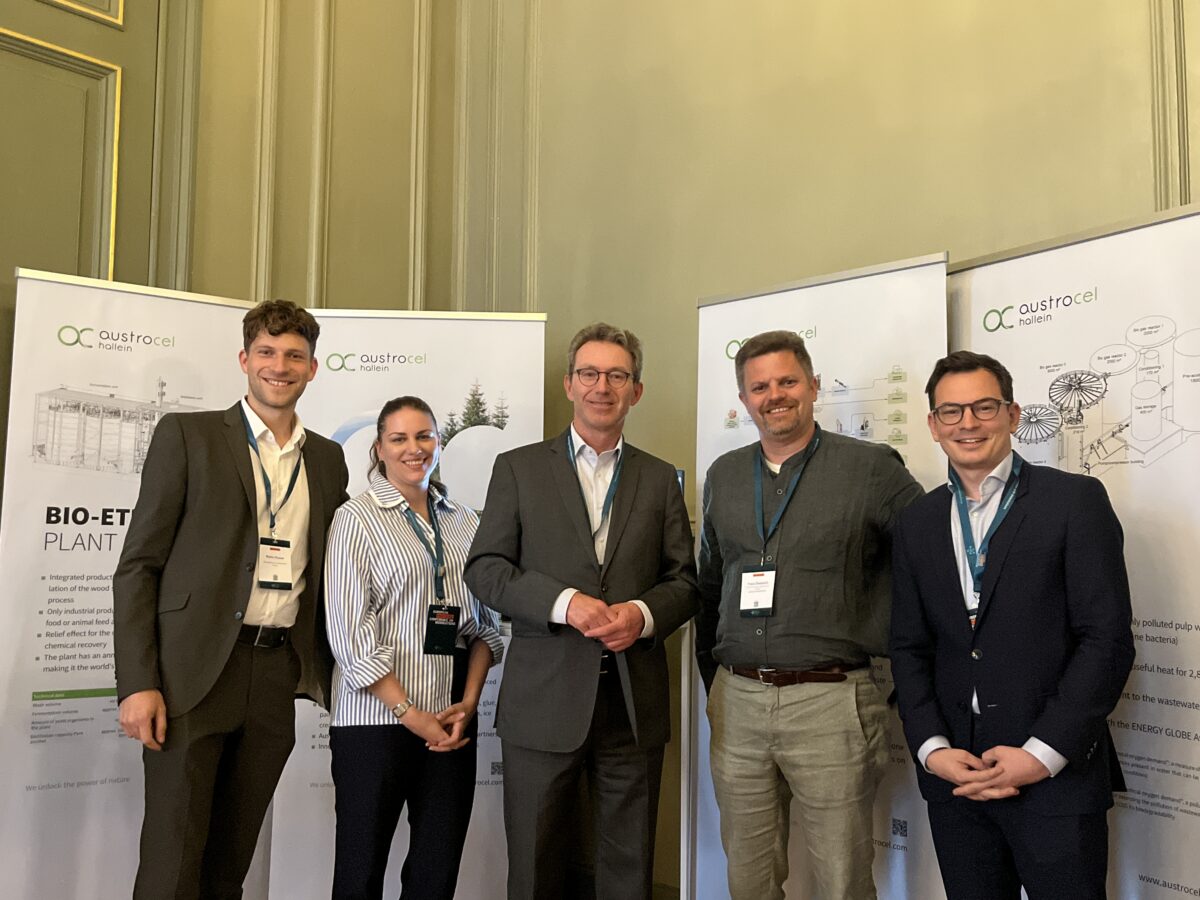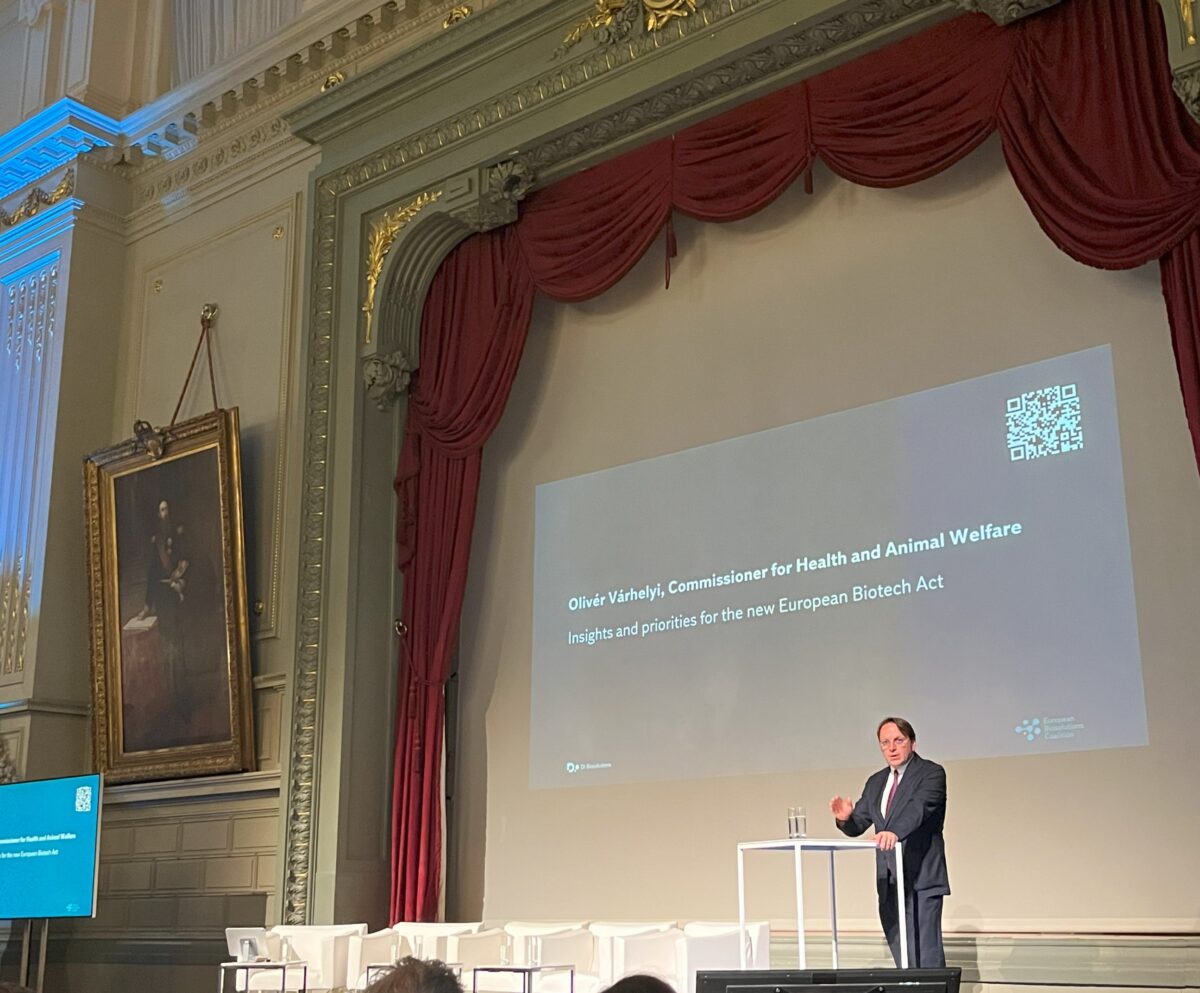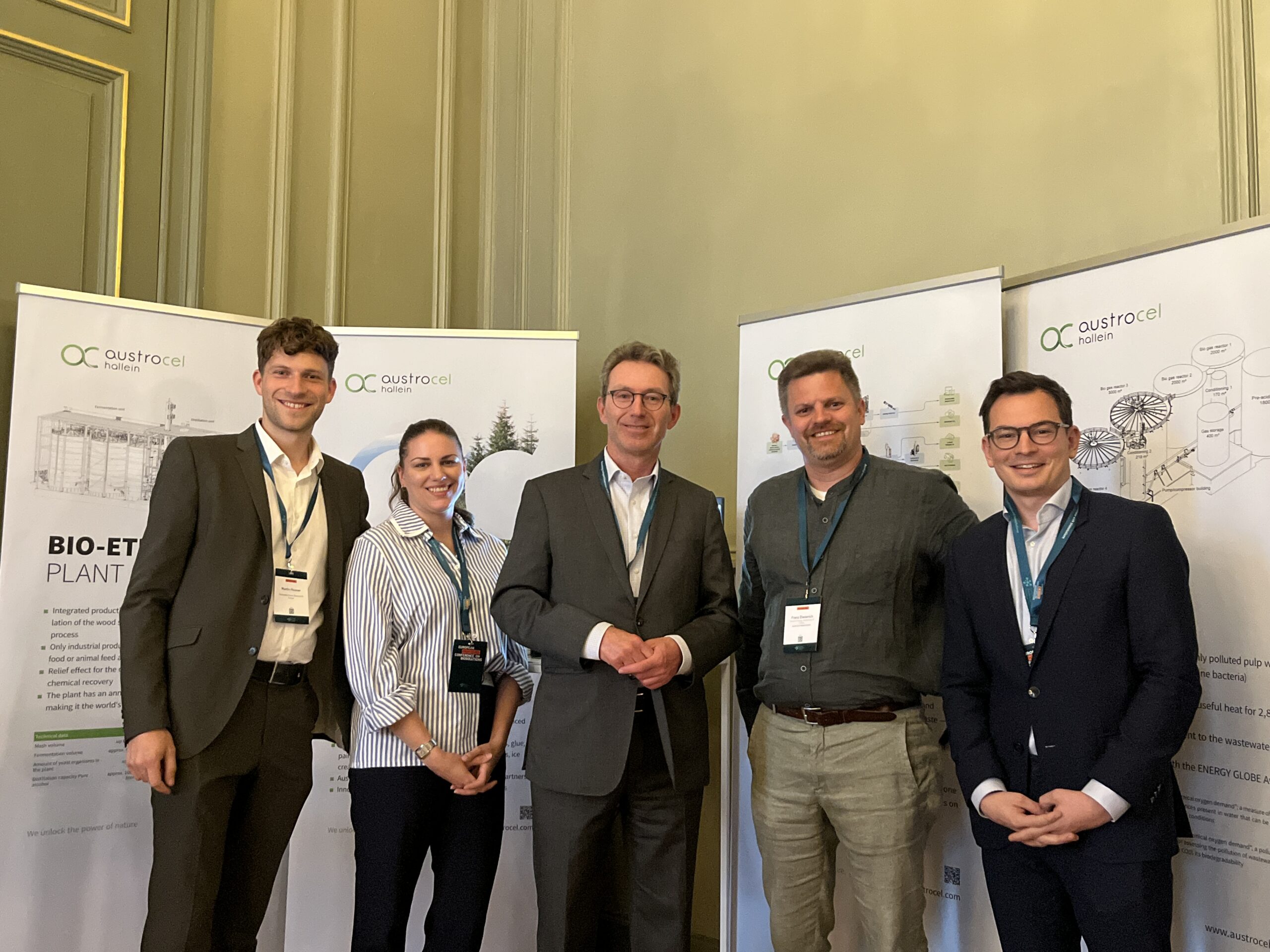Bioeconomy Austria participated in the conference held on 13 May 2025 in Brussels, organised by the European Biosolutions Coalition. Together with our network partners from the Federation of Austrian Industries and AustroCel Hallein, we represented Austria’s bioeconomy sector at the event. The conference clearly demonstrated that bioeconomy is gaining increasing strategic importance within European industrial and innovation policy. Policymakers and international experts underscored the pivotal role of bio-based solutions for competitiveness, resilience, and climate objectives—yet also highlighted the urgent need for action.
EU Commissioner Oliver Várhelyi delivered a keynote outlining the Commission’s principal initiatives for the biotech and bioeconomy sectors. Central to his address were regulatory simplifications, accelerated innovation pathways, enhanced access to capital, and the expansion of digital infrastructures and human resources. Várhelyi emphasised that a modern bioeconomy is not only ecologically vital but also economically and geopolitically significant. Beyond strengthening entrepreneurial skills, he stressed the creation of scalable frameworks as essential to safeguarding Europe’s long-term competitiveness in this field.
Maive Rute, Deputy Director-General at DG GROW, positioned the bioeconomy as a core component of the European Clean Industrial Deal, for which a budget of €50 billion was announced. Rute pointed to the necessity of bolstering resilience through diversification and regional alternatives, and of elevating the economic importance of the bioeconomy within the political agenda.
Paulina Dejmek Hack, Chief of Staff to EU Environment Commissioner Roswall—responsible for the bioeconomy strategy update—spoke of a decisive moment for the bioeconomy. She emphasised the value of intelligent, autonomous value chains and characterised the bioeconomy as the nexus between competitiveness, climate goals, and strategic resilience. The primary deficit at present, she argued, is the lack of scalability of bio-based innovations.
Janka Oertel, Director of the Asia Programme at the ECFR, analysed the geopolitical challenges. She noted the mounting pressure from China and the USA and cautioned that Europe must strengthen its internal market and actively secure strategically important industrial sectors—including the bioeconomy. Her central message was that the issue transcends sustainability and encompasses industrial sovereignty and economic strength.
Edward Shenderovich, CEO of the US investor Synonym, elucidated the dynamics of international capital markets. He suggested that geopolitical uncertainty in the USA could create investment opportunities for Europe. However, he insisted that this would require an innovation-friendly environment underpinned by predictable and transparent frameworks. Europe cannot compete on price alone, but can excel through quality, speed, and reliable regulation.
Conclusion
Bioeconomy is still being negotiated below its true economic and societal worth. It already accounts for approximately 17 million jobs and contributes 5 percent to the EU’s GDP. Simultaneously, Europe is increasingly losing innovation projects to other regions of the world. The conference made it evident that regulation, financing, and infrastructure represent critical bottlenecks. If Europe is to secure the bioeconomy as part of its future economic policy, it requires accelerated processes, reliable investment conditions, and a strategic narrative that interweaves economic growth, climate protection, and societal wellbeing. The imperative for action is immediate.


